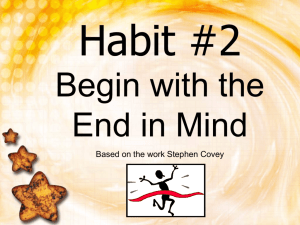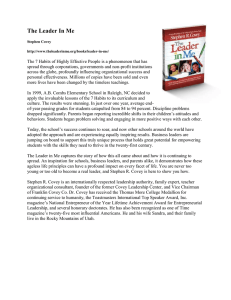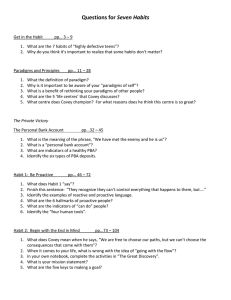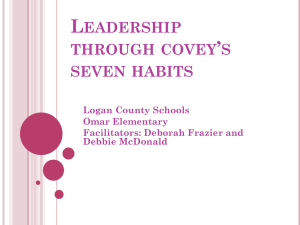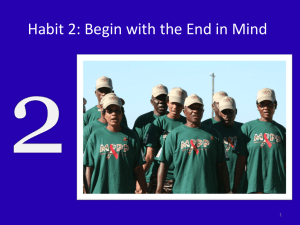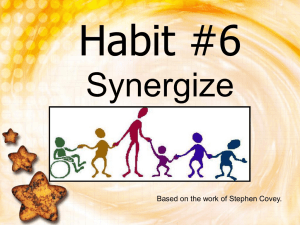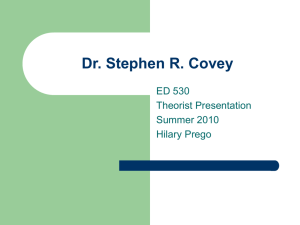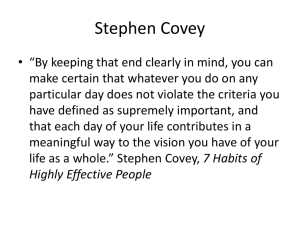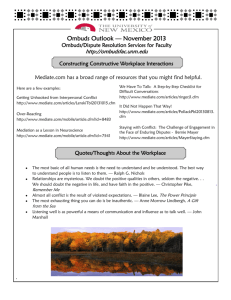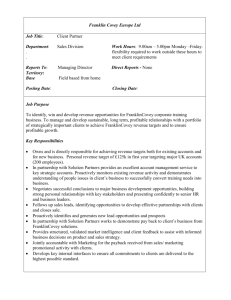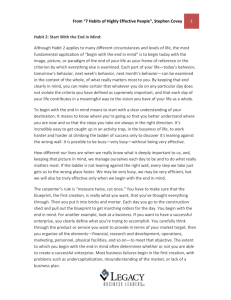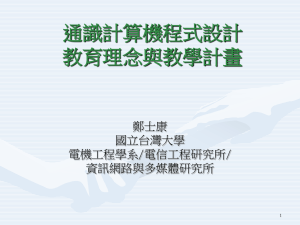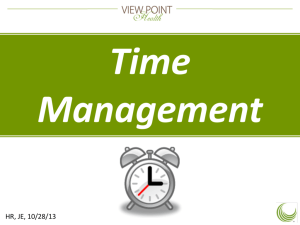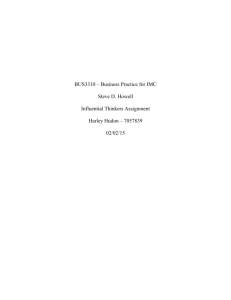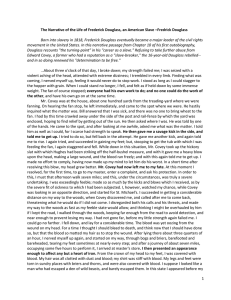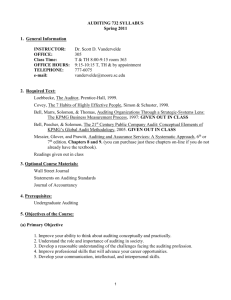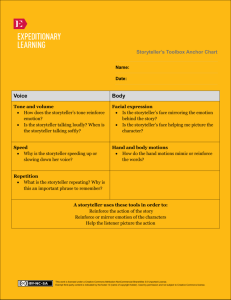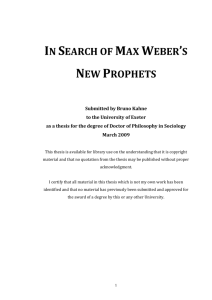SYNOPSIS OF DISCOVERING COVEY'S 8TH HABIT WORKSHOP
advertisement
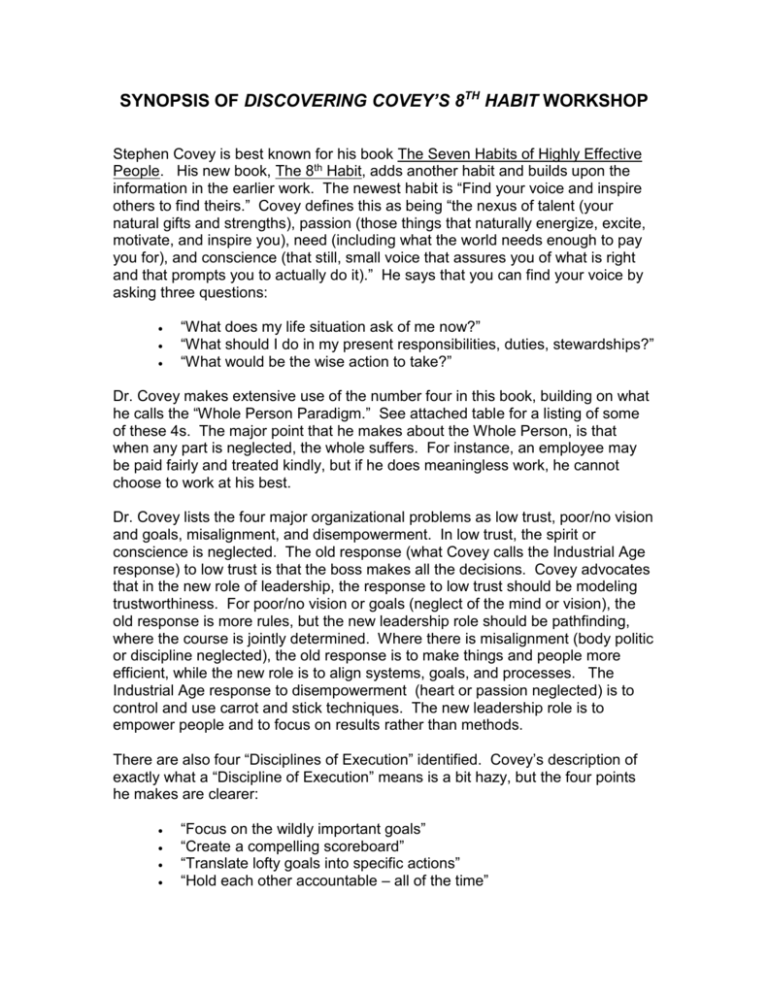
SYNOPSIS OF DISCOVERING COVEY’S 8TH HABIT WORKSHOP Stephen Covey is best known for his book The Seven Habits of Highly Effective People. His new book, The 8th Habit, adds another habit and builds upon the information in the earlier work. The newest habit is “Find your voice and inspire others to find theirs.” Covey defines this as being “the nexus of talent (your natural gifts and strengths), passion (those things that naturally energize, excite, motivate, and inspire you), need (including what the world needs enough to pay you for), and conscience (that still, small voice that assures you of what is right and that prompts you to actually do it).” He says that you can find your voice by asking three questions: “What does my life situation ask of me now?” “What should I do in my present responsibilities, duties, stewardships?” “What would be the wise action to take?” Dr. Covey makes extensive use of the number four in this book, building on what he calls the “Whole Person Paradigm.” See attached table for a listing of some of these 4s. The major point that he makes about the Whole Person, is that when any part is neglected, the whole suffers. For instance, an employee may be paid fairly and treated kindly, but if he does meaningless work, he cannot choose to work at his best. Dr. Covey lists the four major organizational problems as low trust, poor/no vision and goals, misalignment, and disempowerment. In low trust, the spirit or conscience is neglected. The old response (what Covey calls the Industrial Age response) to low trust is that the boss makes all the decisions. Covey advocates that in the new role of leadership, the response to low trust should be modeling trustworthiness. For poor/no vision or goals (neglect of the mind or vision), the old response is more rules, but the new leadership role should be pathfinding, where the course is jointly determined. Where there is misalignment (body politic or discipline neglected), the old response is to make things and people more efficient, while the new role is to align systems, goals, and processes. The Industrial Age response to disempowerment (heart or passion neglected) is to control and use carrot and stick techniques. The new leadership role is to empower people and to focus on results rather than methods. There are also four “Disciplines of Execution” identified. Covey’s description of exactly what a “Discipline of Execution” means is a bit hazy, but the four points he makes are clearer: “Focus on the wildly important goals” “Create a compelling scoreboard” “Translate lofty goals into specific actions” “Hold each other accountable – all of the time” The book is an admittedly slow read, but is full of important points that can be used with many different training topics. Included with the book is a DVD of short vignettes, some of which are quite good. These cannot be used in a training session, however, without specific permission. The book does refer to some free information on the Internet at the following sites: http://www.StephenCovey.com/ www.FranklinCovey.com/letsgetreal www.The8thHabit.com
